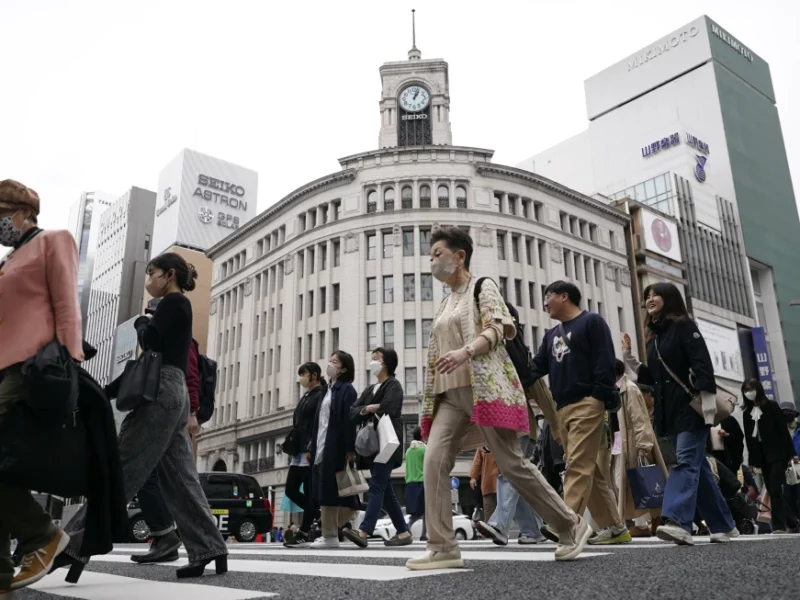In July-September, prominent Japanese manufacturers expressed a more positive outlook for their business sentiment, marking the second consecutive quarter of improvement, as revealed in a recent central bank survey in Tokyo. The Bank of Japan’s quarterly “tankan” survey showed that sentiment among major manufacturers stood at a positive 9, up from a positive 5 in June.
Additionally, major non-manufacturers displayed increased optimism, with sentiment rising by four points to a positive 27. This marks the sixth consecutive quarter of improvement and represents the most positive sentiment in approximately three decades.
The tankan survey, conducted quarterly, assesses corporate sentiment by calculating the difference between the number of companies reporting positive business conditions and those indicating negative conditions.
Tourism, which had been a significant contributor to the world’s third-largest economy in recent years, suffered a setback due to the pandemic. However, incoming travelers have been slowly returning to levels close to what was seen before the pandemic.
The adverse impacts of COVID-19 on the supply of computer chips and other crucial components for manufacturers have also been gradually alleviating, leading to a recovery in production, as per analysts’ assessments.
Toshihiro Nagahama, chief economist at Dai-ichi Life Group, mentioned that the recent depreciation of the yen, combined with the ongoing improvement in the supply chain, is believed to have played a role in boosting the confidence of major manufacturers.
Regarding non-manufacturers, the resurgence of foreign tourists and robust domestic tourism during the summer vacation period likely contributed to the improvement in sentiment, according to Nagahama.
Over the past decade, the Japanese economy has faced overall stagnation, characterized by sluggish wage growth. Additionally, the surging energy prices, driven by Russia’s conflict in Ukraine, have posed challenges for Japan, which heavily relies on oil imports, particularly at a time when the Japanese yen has been depreciating.
However, the weaker yen has also had a positive impact, boosting the earnings of exporters such as Toyota and Nintendo from overseas sales. The dollar has recently been trading at around 149 yen, a notable increase from below 130 yen in January.
Looking ahead to the tankan’s projection of business sentiment in the next three months, major manufacturers anticipate a modest improvement of 1 point, reaching a positive 10.
The Bank of Japan’s future actions regarding interest rates are closely monitored. The central bank has maintained interest rates at or below zero for an extended period to stimulate Japan’s economy. The BOJ’s objective is to achieve stable 2% price increases.











